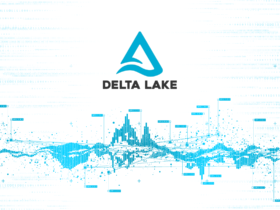Generative Artificial Intelligence (AI) has turned into a progressive power, reshaping innovation and inventiveness. From creating text and pictures to making music, generative artificial intelligence has opened extraordinary potential outcomes. Nonetheless, alongside its capacities, generative Artificial Intelligence delivers a large group of moral contemplations that request cautious consideration. As we keep on digging into this quickly advancing field, it becomes basic to explore these moral difficulties to guarantee that Artificial intelligence serves humankind emphatically. In this article, we will investigate the key moral difficulties presented by generative AI and propose potential solutions to address them.
Ethical Implications of Generative AI:
1. Bias and Fairness:
Generative AI models are prepared on immense datasets, frequently obtained from the web, which may coincidentally contain predispositions intrinsic in society. These biases can appear in the created content, sustaining generalizations and separation. Tending to bias in generative AI simulated intelligence requires a multi-layered approach. It requires the cautious curation of preparing information to limit biases. Moreover, ordinary reviews of AI models can help identify and relieve biases that might emerge during the preparation cycle. Besides, integrating different points of view into the advancement cycle and encouraging inclusivity can add to alleviating bias in generative AI outputs.
2. Misuse and Manipulation:
The capacity of generative AI to make profoundly realistic substances raises worries about its true capacity for misuse and manipulation. From deep fake recordings to fake news stories, the innovation can be taken advantage of to manipulate people or spread false information on a massive scale. Combating misuse and manipulation of generative AI requires a blend of administrative measures, mechanical arrangements, and public awareness campaigns. Regulating strict guidelines to assist the utilization of generative AI, combined with the improvement of vigorous validation and confirmation systems, can assist with moderating the spread of maliciously created content. Furthermore, educating people in general about the presence and implications of deep fakes and different types of controlled content is crucial for cultivating critical thinking and media proficiency.
3. Privacy and Data Protection:
Generative AI frequently depends on enormous datasets, raising huge concerns about privacy and data protection. The utilization of individual information without consent for training AI models can encroach upon individuals’ privacy privileges and lead to potential misuse of sensitive data. Complying with severe privacy guidelines like the General Data Protection Regulation (GDPR) and guaranteeing clearness in regard to information collection and use are important to maintaining the trust and regarding client protection with regards to generative AI privacy preserving methods, for example, unified learning and differential privacy can assist with moderating privacy risks related with generative AI applications.
4. Possession and Intellectual Property:
The subject of possession and intellectual property rights in generative AI-generated content remains generally unsettled. With AI systems fit for independently creating content, figuring out who claims the result produced by these systems represents a huge test.
Moreover, issues connected with attribution and crediting makers for content created by simulated intelligence models further confound matters. Clear rules and lawful structures should be laid out to resolve these inquiries and safeguard the privileges of both content creators and AI developers. Besides, encouraging joint effort between legitimate specialists, technologists, and policymakers is necessary to foster imaginative arrangements that strike harmony between advancing inventiveness and shielding intellectual property rights in the time of generative AI.
5. Accountability and Transparency:
As generative AI frameworks become progressively independent, considering AI systems responsible for their activities becomes obligated. Transparency in artificial intelligence dynamic cycles is crucial for understanding how and why certain results are created and for distinguishing expected biases or errors. Carrying out components for accountability, like detectability and reasonableness, can assist with cultivating trust and relieve potential damages related to generative AI. Besides, putting clear lines of liability and responsibility for AI- produced content can give a plan of action to people hurt by malicious or incorrect results.
Potential Solutions and Best Practices:

1. Ethical Design and Development:
Incorporating ethical contemplations into the plan and improvement process of generative AI frameworks is basic to guaranteeing mindful AI innovation. This includes focusing on reasonableness, transparency, and responsibility all along and leading intensive ethical effect appraisals all through the improvement lifecycle. Moreover, cultivating a culture of ethical mindfulness and obligation inside AI innovative work groups can assist with guaranteeing that ethical contemplations are incorporated into each phase of the simulated intelligence improvement process.
2. Collaboration and Stakeholder Engagement:
Tending to ethical difficulties in generative AI requires cooperation among different stakeholders, including researchers, policymakers, industry pioneers, and civil society associations. Engaging in open discourse and multidisciplinary joint effort can encourage agreement on ethical guidelines and advance mindful AI development. Besides, including impacted networks and end-users in the dynamic cycle can assist with guaranteeing that AI advancements are created and sent in a way that lines up with cultural qualities and needs.
3. Regulation and Governance:
Administrative systems play a significant part in directing the ethical utilization of generative AI and considering partners responsible for their activities. Governments and international associations need to order regulations and arrangements that defend against misuse, promote transparency, and maintain basic freedoms and values. Furthermore, administrative organizations ought to be enabled to monitor and uphold consistency with ethical rules and norms for generative AI applications. Besides, cultivating worldwide collaboration and harmonization of guidelines can assist with tending to the worldwide idea of ethical difficulties related with generative AI.
4. Education and Awareness:
Bringing issues to light about the ethical implications of AI-generated content among public, policymakers, and industry experts is crucial for encouraging informed navigation and capable utilization of AI advancements. Instruction drives can engage people to basically assess AI-generated content and backers for ethical practices inside their associations. Besides, coordinating ethics education into AI-related educational plans and expert training projects can assist with developing a new generation of AI professionals who focus on moral contemplations in their work.
Conclusion:
Generative artificial intelligence holds massive commitment for propelling innovation and imagination; however, its ethical implications can’t be neglected. By resolving issues like bias, abuse, misuse, ownership, and responsibility, we can harness the advantages of generative AI. Through cooperation, regulation, instruction, and ethical plan practices, we can develop a future where AI serves mankind mindfully and ethically. It is basic to explore the ethical contemplations in generative AI with constancy and foresight to guarantee a positive effect on society. As we keep on pushing the limits of AI development, let us endeavor to maintain the upsides of reasonableness, transparency, and accountability to guarantee that AI stays a power for good in the world.








